








It’s no secret that attorneys work long hours and are pulled in many different directions.
It comes as no surprise then, that, for the first time, attorneys surveyed in Bloomberg Law’s Attorney Workload and Hours survey reported experiencing burnout in their job more than half the time, according to a March post on Bloomberg Law’s website.
Survey respondents in Q4 reported that they felt burnout in their jobs 52% of the time — a notable increase from the past two quarters, when the percentage of time reported was 44% in Q3 and 47% in Q2, the post stated. This was the first time since the survey’s inception in 2020 that the percentage of time attorneys reported feeling burnt out has topped more than 50 percent.
Those are some sobering statistics.
Which is why it’s all the more impressive to note the difference-makers in this year’s Leaders in Law class. Despite the pressure of an increase in cases due to Covid-19 — and all the changes wrought on the industry by a global pandemic — these attorneys showed up and were dialed in to their clients, and their communities.
Quick note: Honorees were chosen based on nominations sent to our website. And a big tip of the hat to Teri Saylor, who compiled the honorees' profiles
Well-done, Leaders in Law.
You deserve a break.
Jason Thomas is the interim editor of South Carolina Lawyers Weekly. Reach him via email at jthomas@scbiznews.com.
PUBLISHER
LIZ IRWIN Publisher lirwin@bridgetowermedia.com
EDITORIAL
JASON THOMAS, Interim Editor
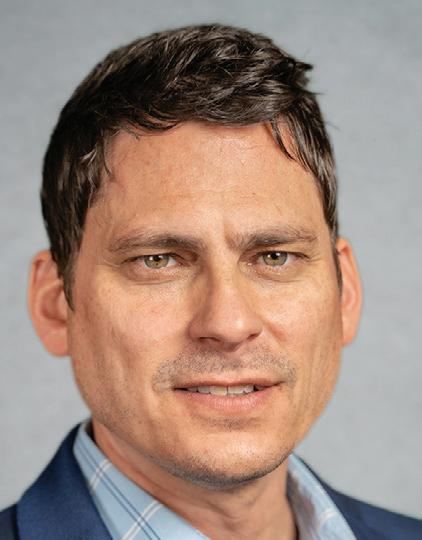
HAVILAND STEWART, Staff Writer hstewart@nclawyersweekly.com
SCOTT BAUGHMAN, Digital Media Manager sbaughman@nclawyersweekly.com
ADVERTISING
SHEILA BATIE-JONES, Advertising Account Executive sheila.batie-jones@nclawyersweekly.com
ACCOUNTING & ADMINISTRATIVE
MICHAEL MCARTHUR, Business Manager mmcarthur@bridgetowermedia.com
PRODUCTION & OPERATIONS
JOHN RENO, Production Manager john.reno@molawyersweekly.com
©2021 BridgeTower Media. Material published in South Carolina Lawyers Weekly is compiled at substantial expense and is for the sole and exclusive use of purchasers and subscribers. The material may not be republished, resold, recorded, or used in any manner, in whole or in part, without the publisher’s explicit consent. Any infringement will be subject to legal redress.
South Carolina Lawyers Weekly (USPS #020216) is published biweekly every other Monday with General Statewide Circulation by South Carolina Lawyers Weekly at 130 N. McDowell St. Unit B, Charlotte NC 28204-2411. (919)829-9333, (800)-876-5297. Periodicals postage paid at Charlotte, NC 28228-9998. Subscriptions Rates: $369 per year.
Website: www.sclawyersweekly.com
POSTMASTER: Electronic Service Requested, send address changes to South Carolina Lawyers Weekly, Subscription Services, P.O. Box 1051 Williamsport, PA, 17703-9940
service@bridgetowermedia.com
The South Carolina Lawyers Weekly is a publication of BridgeTower Media 222 South Ninth Street Suite 900, Minneapolis, MN 55402.
"Helping lawyers practice better, more efficiently, and more profitably."
After growing up in a family of entrepreneurs, it is almost second nature for Austin Baker to nurture his passion for helping people achieve their goals in business.
“Outside of helping people with transactions, I enjoy meeting people and introducing them to others who have opportunities for business and growth,” he said. “Helping clients accomplish something or
get out of a bad situation gives me a sense of pride and happiness.”
Licensed in both North Carolina and South Carolina, Baker’s work spans both states. He is a partner at McMIllan, a firm with offices in Charlotte and Charleston, and he practices business law, commercial real estate and in financial services.
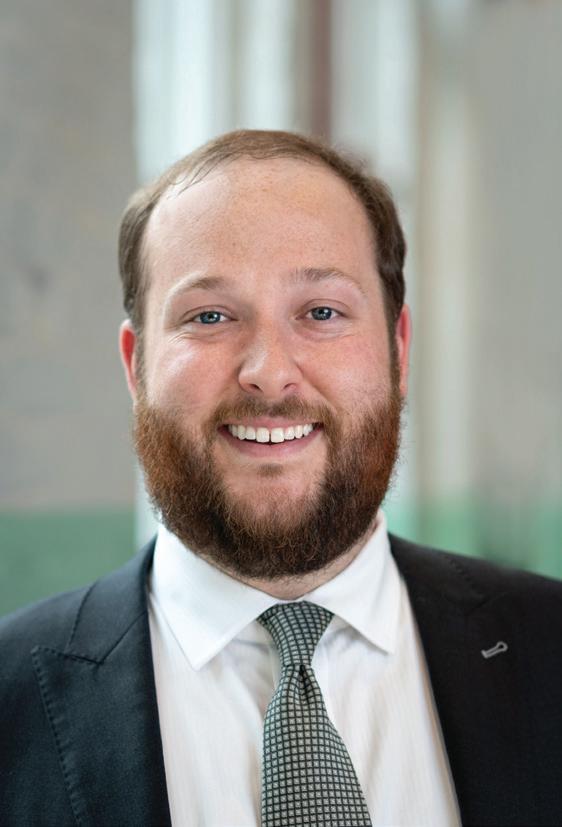
He is a graduate of Mississippi State University with a Bachelor of Business Administration, and received his law degree from Charlotte School of Law. He has been in practice for eight years.
Baker attributes his career success to his ability to stay calm and collected, and to exude calmness to those around him.
“My dad always taught me that in a difficult situation, look for the calmest person in the room and emulate or gravitate toward that person, because they would be the one to fix the problem,” he said. “I have used this advice to my advantage
her work had on families and the judicial system,” he said.
Black went on to the University of South Carolina where he earned both his bachelor’s degree and law degree.
Black, who is a member at Nexsen Pruet in Columbia, is a litigation attorney whose practice touches a variety of areas.
throughout my career.”
Baker says if he had not become a lawyer, he might have owned a garage or an automotive custom shop, where he would modify and restore vehicles.
“I have a passion for cars and trucks, and I like the feeling of accomplishment I get when I repair something or complete an upgrade,” he said.
One of Baker’s favorite movies about lawyers is "My Cousin Vinny," and he believes beginning lawyers can identify with the lead character, who went years without winning a case before being called to defend his two cousins who were charged with murder.
“We all have the same issues Vinny did when we were getting started,” Baker said. “Constantly learning new things, new ways to get things done, and dealing with surprises left and right, whether they were to our benefit or chagrin.”
While attending South Aiken High School, David Black worked a summer internship at the Second Circuit solicitor’s office. He admits that as a teenager, his dream was to become an F1 driver, but a career in law won out in the end and he has been a lawyer for 22 years.
“During my internship, I witnessed Solicitor Barbara Morgan work on challenging cases, and I saw the firsthand impact
He chairs the firm’s Litigation Practice Group and serves as the managing member and adviser for Nexsen Pruet’s electronic discovery and information management division, Nextra Solutions, overseeing the Nextra team and working closely with the director of Nextra Solutions on strategic initiatives and opportunities.
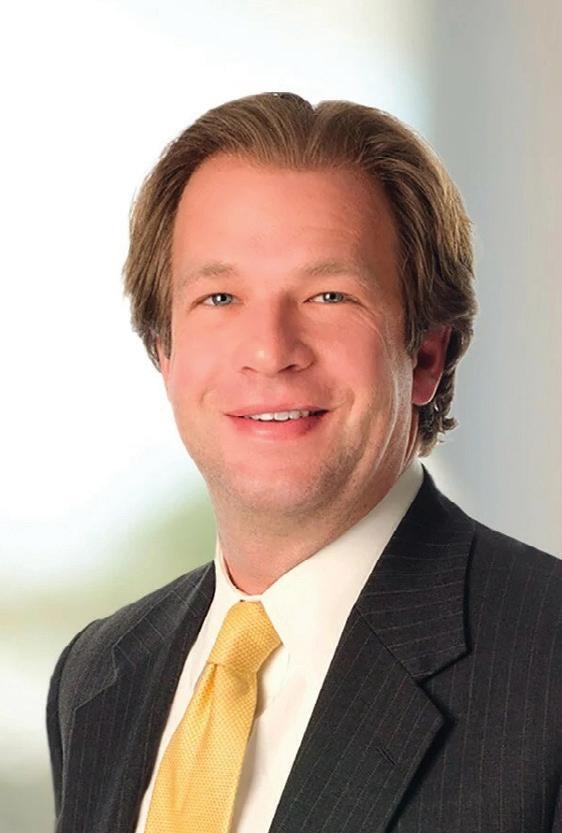
Over the course of his career, Black has developed a reputation as an accomplished litigator with first chair trial experience, known for winning complex cases.
He considers the late entertainer James Brown’s family estate settlement as his
top professional success.
“Throughout a three-month period, we mediated a complex federal and state case with parties from the United Kingdom to California,” Black says. “That settlement will eventually lead the way to fulfilling Mr. Brown’s wish to provide scholarships to needy children in South Carolina and Georgia.”
The James Brown family settlement is a case that illustrates one characteristic that Black feels makes him a successful lawyer — persistence.
“My parents taught me from a young age to always put in my best effort and never give up,” he said.
That quality is apparent in one of Black’s favorite fictional portrayals, that of lawyer Atticus Finch in the book and movie "To Kill a Mockingbird."
“The challenges Atticus Finch faced in seeking justice for his client emphasized the importance of never losing track of your core values,” he said.
During Kenneth Berger’s growing up years, his father encouraged him to pursue a career as either a doctor or a lawyer. But for Berger, one thing that stood between him and a medical degree was 9 th grade biology.
“I did pretty well in debate and mock trial, so law seemed like my best option,” he said.
As a personal injury lawyer in Colum-







bia and Myrtle Beach, Berger finds it ironic that he must understand medical conditions to effectively represent clients who have been hurt in various types of accidents. And along the way, he has been able to fulfill his personal mission to protect people and right wrongs.
“In Yiddish, the word ‘bashert’ is used to talk about one’s destiny,” he said. “I believe it was bashert for me to become a lawyer, and in turn, that I have a duty to be the absolute best I can be.”

Berger has a Bachelor of Arts degree in political science and government from the College of Charleston. He earned his law degree at the University of South Carolina School of Law. He launched the Law Office of Kenneth E. Berger in 2011, at the age of 29.
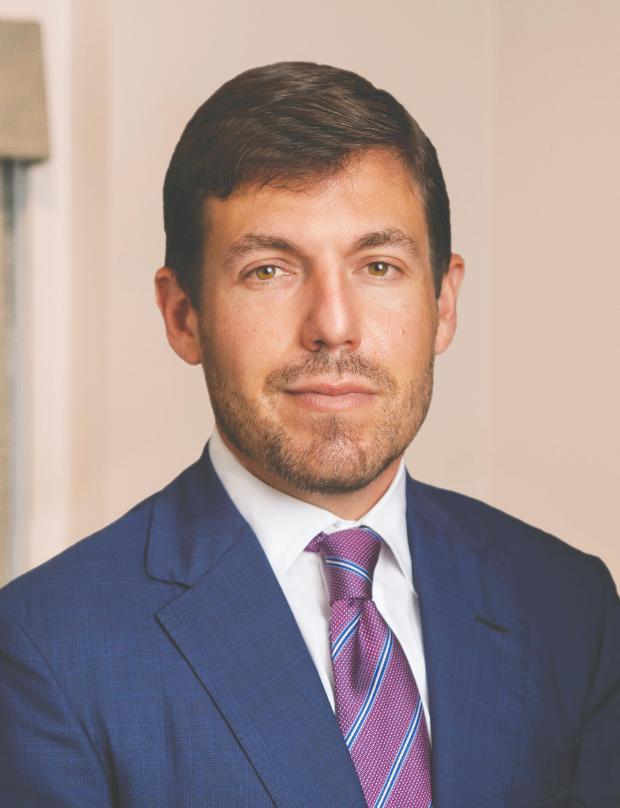
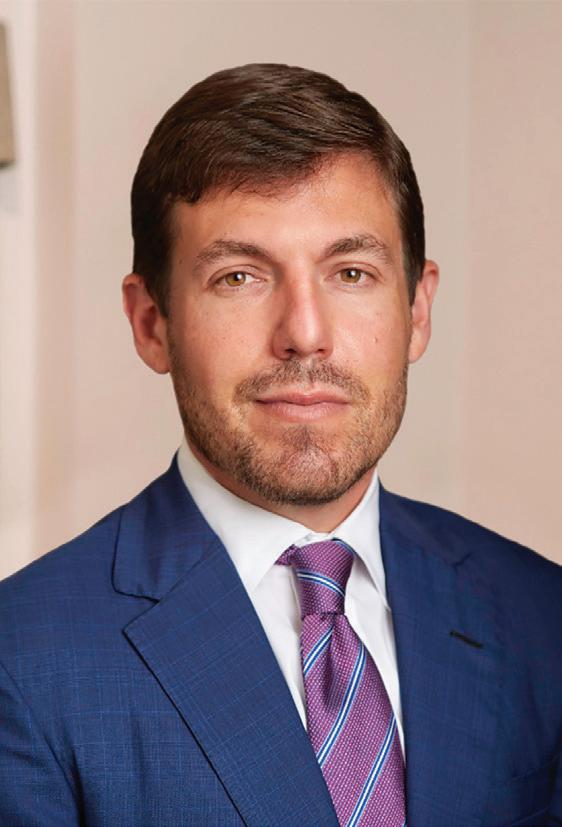
He believes empathy is the key to success as a plaintiff’s lawyer and says he can’t imagine representing another
person’s interests and tell their story without understanding who they are and how they feel.
“Even though we can’t ask a jury to put themselves in our client’s shoes, it’s critical that we 'Golden Rule' ourselves to gain a deeper appreciation of a client’s damages,” he said. “When I can see and experience the world from my client’s perspective, it is no longer just a legal case but rather someone’s life in which I am investing my time and effort.”
Berger considers his firm’s Giving Tuesday initiative as his proudest achievement so far in his career.
“Every Tuesday for the last several years we’ve made a donation to charity,” he said. “Sometimes the donations are small, other times large, and like any other habit, the more we practice charity, the easier it is to give even without being asked.”

Rather than choosing a career in law, Shaquana Cuttino believes the law chose her.
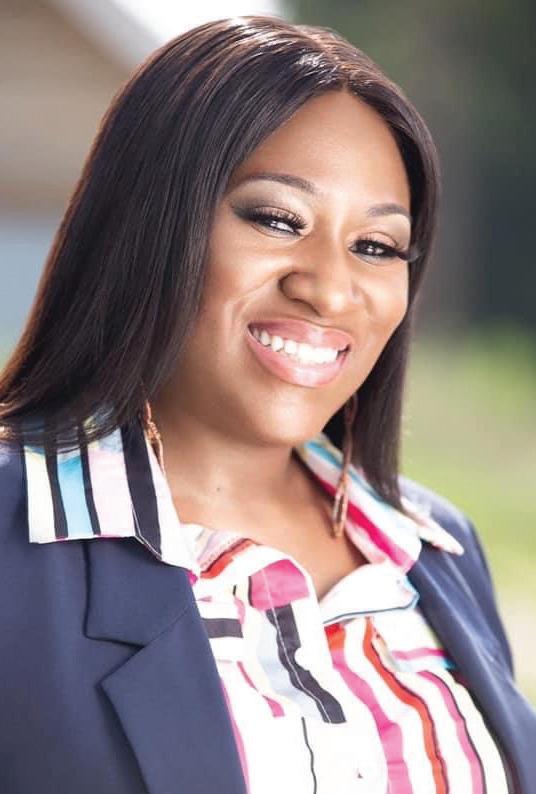
“From the time I was a little girl, my teachers told my parents I was going to be an attorney or a journalist,” she said. She says if she had not chosen a career in law, she would have joined the journalism or entertainment ranks.
Cuttino, who represents clients in a va-
CUTTINO Owner, The Cuttino Law Firm Columbiariety of practice areas, is passionate about protecting people’s rights.
“I have always had a heart for helping people and serving the underdog, and I attribute that to my late great aunt, Alice Kornegay who was an activist in Harlem,” she said. “It is in my blood.”
Cuttino, who spent five years of her career as a law clerk, has been a licensed attorney for three years. She earned her bachelor’s degree from South Carolina State University and her law degree from The Southern University Law Center in Baton Rouge. She owns The Cuttino Law Firm in Columbia.
In the movie, "Marshall," which portrays the life of U.S. Supreme Court Justice Thurgood Marshall, Cuttino saw aspects of many real-life attorneys.
“The movie showed the struggles attorneys sometimes face when they stand up and fight for the right thing when it may not be the most popular thing to do,”
she said. “It also showed the life of Justice Marshall and how fighting for justice all over the world affected his marriage and his home life.”
Cuttino spends much of her time helping people who are going through tough times, including saving families from being evicted and helping non-custodial parents receive more than basic visitation rights. She considers these successful efforts to be among her top professional successes.
“I believe a child needs both parents and that Friday at 6 p.m. until Sunday at 6 p.m. every other weekend is not enough visitation for a parent,” she said.
Cuttino points to one characteristic that makes her successful is humility.
“As long as we remain humble, we can serve anyone in any capacity.” she said. “I’ve learned if you have a heart for people, you are going to win every time, and in more ways than one.”
Firm in Charleston. He primarily represents plaintiffs in personal injury matters.
Last March, Jordan was part of the Steinberg Law Firm team that prevailed in a jury trial resulting in a $212,312 award for their client, a 74-year-old man injured in a rearend collision in Horry County.
While Jordan maintains all attorneys are smart individuals, he considers that the most successful professionals are those who are also conscientious and productive.
“Strong work ethic sets great lawyers apart from all the others,” he says.
Michael Jordan credits his service as a page at the South Carolina House of Representatives as the turning point that charted the course of his career. He was a history major at the University of South Carolina at the time, and his fascination with the lawmaking process inspired his decision to go to law school.
He went on to earn his law degree at Florida Coastal School of Law and has been practicing for 16 years at Steinberg Law
On his firm’s website, Jordan writes: “It’s all about doing the right thing for my clients. I’m looking out for my clients’ best interests, letting them know we’re in this together — for the long run.”
A fictional character that Jordan views as a good representative of plaintiffs’ attorneys is John Grisham’s Rudy Baylor in the novel "The Rainmaker." The actor Matt Damon portrayed Baylor in the movie ver-
sion of the book.
“The character represents the injured party against the giant insurance company, the fight David v. Goliath we have every day,” Jordan said.
Jordan is active in a variety of professional organizations and is a past president of the Berkeley County Bar Association. Since his law school days, he has been committed to service in the greater Charleston community, beginning in a legal aid clinic. He also devotes time to Lowcountry AIDS Services in Charleston and other nonprofit organizations, including Kids Chance of South Carolina.
Law partner David Pearlman cites Jordan’s community service as key to his success as a lawyer.
“His dedication to such involvement began while in law school when he volunteered his services in a legal aid clinic,” he said. “That work helped him appreciate every citizen’s right to a fair hearing.”

Janet Holmes considers herself a passionate advocate for her clients, a characteristic that makes her a successful lawyer, and after 30 years in practice, she most enjoys mentoring new lawyers.
“I feel privileged to have been selected by the South Carolina Supreme Court as one of the two Mentors of the Year in 2020,” she said.


Lauren Trask, now an associate attorney at Collins & Lacy, recalls how she benefited from Holmes’ mentorship.
“She would not only help me work through the angles of any issues, but she also helped ease concerns by explaining situations that she had experienced and by leaning on her years of practice for reference,” Trask said.
Holmes, who holds a Bachelor of Arts degree from Clemson University and earned her law degree at the University of South Carolina, practices in all areas of civil litigation at the McKay Firm in Columbia where she is a partner.

She credits her father with sparking her interest in pursuing a career in law.
“When I was three years old, my father told me I could argue with the wall, and he’s never reversed his opinion,” she said. “My father strongly encouraged me to apply to law school and become a

lawyer.”
When Holmes was a teenager, she read "Rage of Angels," a novel by Sidney Sheldon. To this day, it remains one of her favorite stories about lawyers. One TV series stands out too.
“While I haven’t watched many shows or movies that genuinely portray an attorney’s life, I do like the attorneys on the 'Law and Order' series and its spinoff s,” she said.
In 1995, Holmes was crowned Mrs. South Carolina and recently served on the Miss South Carolina Scholarship Organization board of directors. She describes early career aspirations with stars in her eyes and is glad she took the pathway to a career in law.
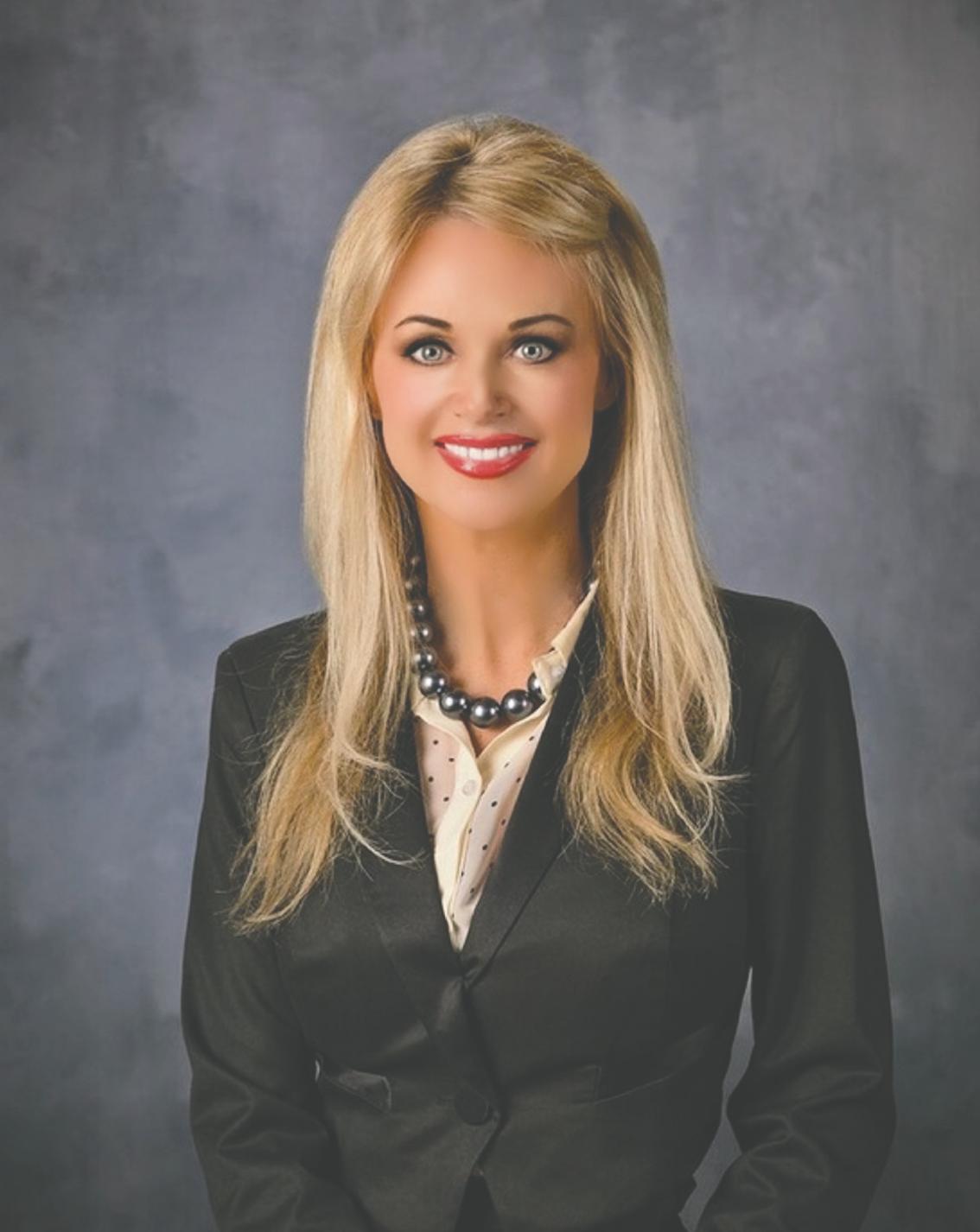
“I always wanted to be a movie star,” she said. “But since that was not going to happen, I think I’m right where I should be.”
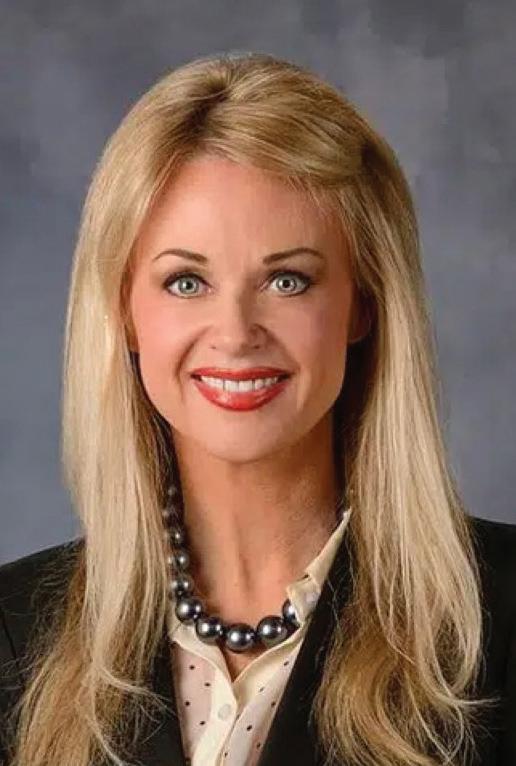
When Ashley Kirkham began making career plans, she turned to a couple of things she loved – houses and reading, so she reckoned the life of a real estate lawyer would be the one for her.
“I quickly discovered a real estate attorney doesn’t get to see houses or examine the décor prior to closing, but around that same time, I realized how much fun it is to litigate,” she said.
Today Kirkham focuses her practice on workers’ compensation defense at Collins & Lacy in Columbia, where she is a shareholder and chairs the firm’s workers compensation practice group. She has practiced for 12 years after receiving her law degree from Florida State University College of Law, graduating magna cum laude. She holds a Bachelor of Arts degree in political science and government from Clemson University. She also is a certified Medicare Set-Aside Consultant through the International Commission on Health Care Certification.
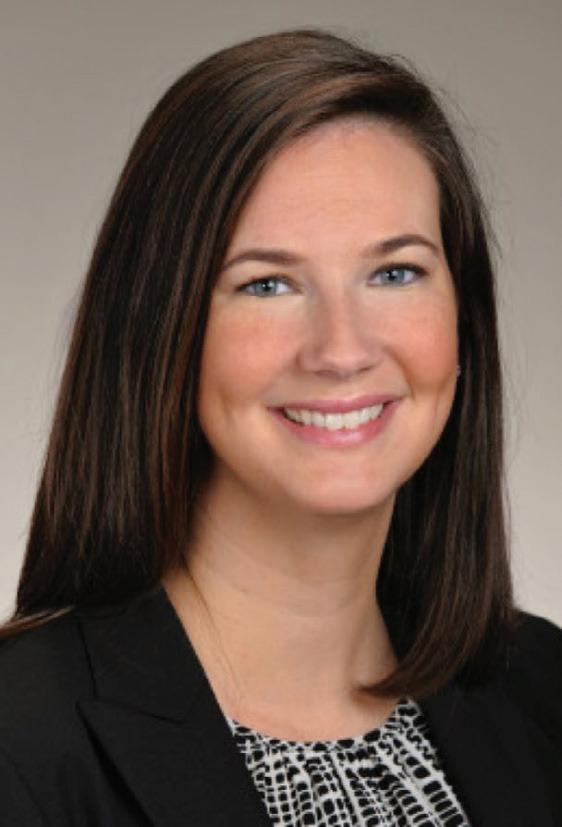
Kirkham credits her skill as a forwardthinking attorney with the success she has experienced in her profession.
“While reviewing matters for my clients, my first reaction is ‘how does this impact our claim and what needs to be done to move the claim forward,’” she said. “Without thinking ahead, claims can drag on and cause unnecessary delays that can be costly.”
When Kirkham is not helping her clients,
she enjoys working with community organizations and considers the opportunity to use the institutional knowledge she has gained in her career to benefit nonprofits as among her top professional successes.
She volunteers her time through the South Carolina Bar Young Lawyers Division, helping the local Special Olympics chapter and drafting estate planning documents for first responders.
She also serves on the membership committee for the South Carolina Women Lawyers Association and is on the Board of Directors for Kids’ Chance of South Carolina, which provides educational opportunities and scholarships for the children of workers seriously injured or killed on the job.
When asked what movie, TV show or book best portrays the life of an attorney, Kirkham says the streaming show "Working Moms" "seems on point with my day-today attempt to juggle three children and my career, albeit in a much funnier way."
LANA KLEIMAN Executive Director, Charleston Legal Access Charlestonimmigration attorney, helping immigrants escaping persecution, just like my parents did in the seventies,” she said. “Then I went on to help victims of domestic violence and worked closely with the Russian immigrant community in New York, as well as the Jewish Orthodox community.”
from a staff of three to a staff of seven, including expanding our practice to include family law and creating several new partnerships with community organizations to increase access to legal representation,” she said.
As a first generation American and the daughter of Russian immigrants, Lana Kleiman became an attorney to use her privilege and education to help those who couldn’t help themselves. She chose a pathway into legal aid services to help her achieve that goal.
“I believe status and wealth should not determine who has access to justice, so I started my career at legal aid as an
Kleiman, who is Executive Director of Charleston Legal Access, received a Bachelor of Arts degree in psychology from New York University and earned her law degree from Brooklyn Law School. She started her career at New York Legal Assistance Group in 2009.
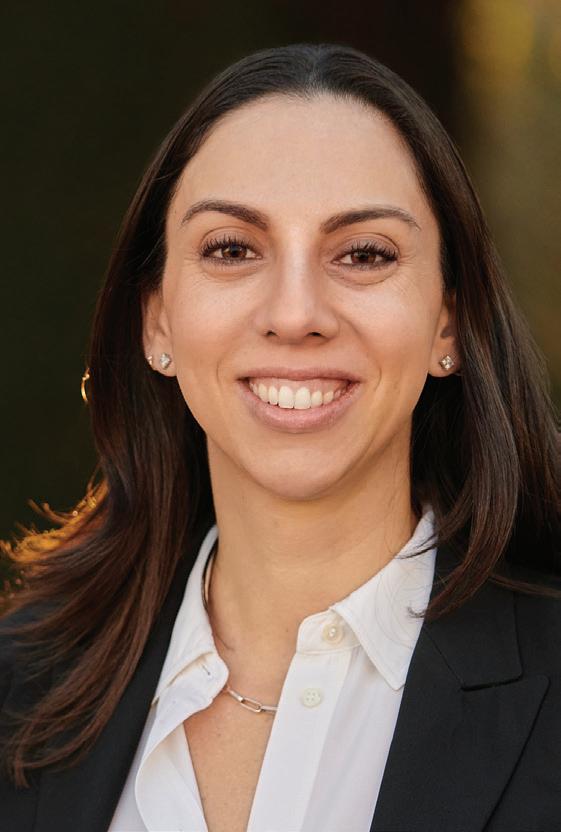
Kleiman’s move to Charleston five years ago was challenging, she says. She worked hard to pass the South Carolina Bar while working and raising two children. In addition, she led Charleston Legal Access through some challenging times, including COVID-19 and several staff transitions.
“Despite these challenges, CLA has hit several milestones, including growing
Kleiman believes empathy is a top characteristic that has led to success in her role at Charleston Legal Access.
“It is about meeting clients where they are, understanding how their life experiences have shaped their situation and not passing judgment on why they are in the situation they are in,” she said.
Kleiman says if she had not pursued a career in law, she might have become a psychiatrist, driven by her fascination for the human brain and how it works.
"I love hearing people’s stories, giving advice and helping them work through issues,” she said. “It’s not that different from what we do as legal aid attorneys. We sometimes wear multiple hats of a social worker, counselor and lawyer.”
Wade Kolb admires lawyers who zealously represent their clients and work hard for them but do not treat their opposing counsel like the enemy. He strives to practice in that fashion too.
He entered the profession 48 years ago, seeing the practice of law as an honorable profession, a way to make a good living, and a way to make positive changes in society.
Kolb was educated at the University of South Carolina, where he earned both his bachelor’s degree and his law degree.
He spent half his career as a criminal prosecutor, serving four terms as the elected solicitor of for the Third Judicial Circuit. It was in this role that he experienced his top professional career success when he prosecuted James Neil Tucker, sentenced to death in 1994 after being found guilty of robbing and murdering 54-year-old Rosa Lee “Dolly” Oakley in her home in Sumter County on June 25, 1992. Tucker was also sentenced to death for the 1992 murder of 21-year-old Shannon Mellon in Calhoun County.
“He was executed on May 28, 2004,” Kolb said.
In 1998, Kolb established his own practice, and today, he practices with Glenn F. Givens at Kolb & Givens. The Sumter law firm offers a wide range of legal services.
Attorney Richard C. Jones, a partner

at Jones Seth and Jones, called him “an outstanding trial lawyer throughout his career.”
Kolb views his ability to remain openminded as a key to his success as an attorney.
“I try to look at things not just from my client’s point of view but the other side’s perspective as well,” he said.
When asked what fictional character best portrays the life and work of an attorney, he responded, “the Atticus Finch character in the movie 'To Kill a Mockingbird' who did an awesome job seeing that justice was done for his client while treating the others involved with respect and dignity.”
If Kolb had not pursued his career as an attorney, he might have become a certified public accountant.
“I majored in accounting in college and worked two summers with an accounting firm,” he said. “I was quite happy in that field until I was drawn to law school.”
With many of your clients and prospects working from home,now is a great time to engage them through a webinar.
Hosting a webinar is a powerful way to connect with your target audience,and with South Carolina Lawyers Weekly - you won’t have to worry about any of the logistics.
Whether you’re looking to move an in-person event online,or just need to generate quality sales leads,our team can help provide turnkey service from marketing to execution!
What is included in your webinar:
• 45-60 minute webinar
• Dedicated project support
• Email marketing
• Social media
• Print ad
When Chris Spradley is not practicing law, he’s serving his community as a volunteer firefighter and speaking to organizations, including the South Carolina State Firefighters Association.
It’s not hard to imagine that if Spradley had not become a lawyer, he might have pursued a career as a firefighter.

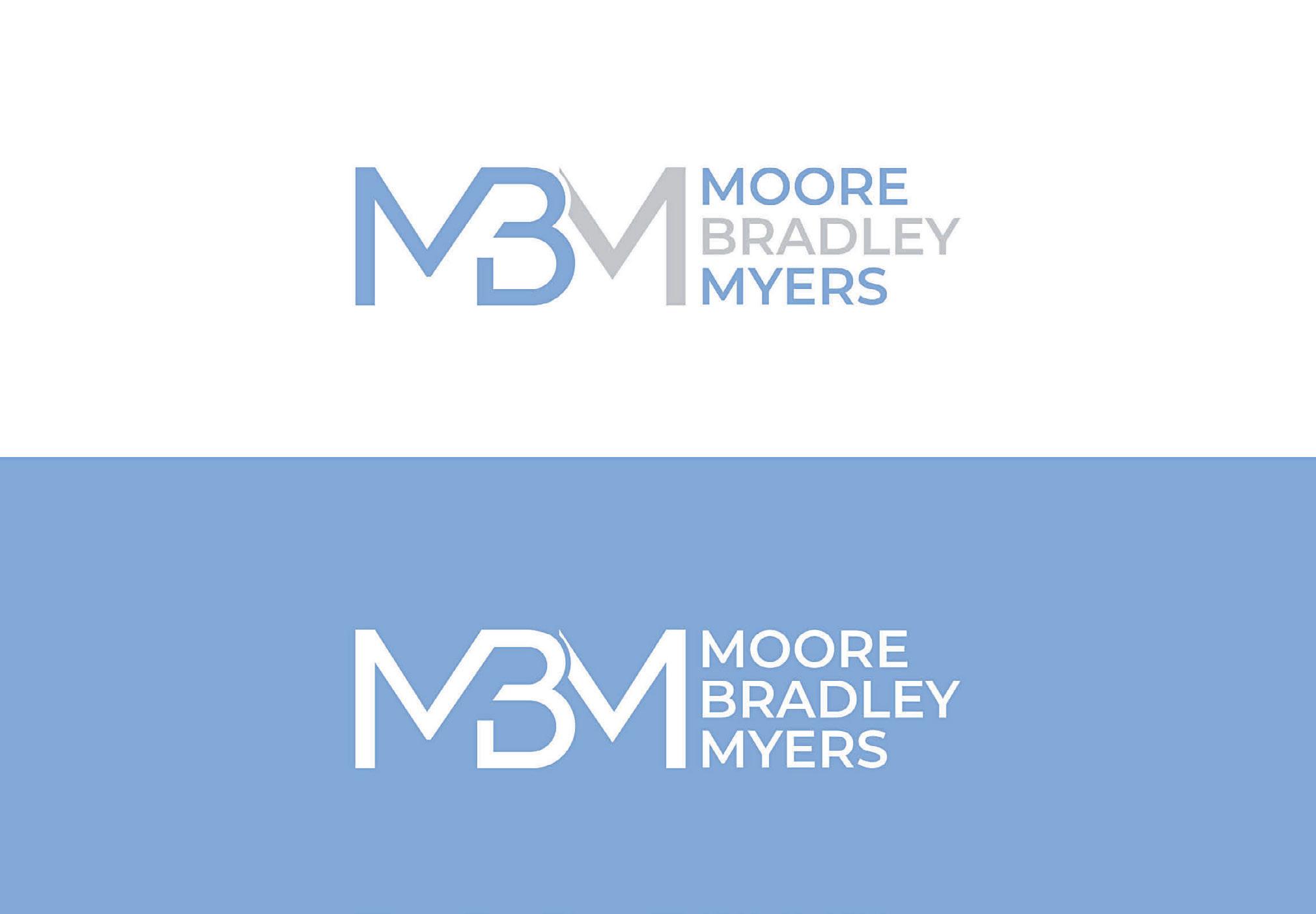
Moore Bradley Myers in West Columbia and as a firefighter with the Saluda Fire Department, where he has held nearly every position the department offers, including chief.
Recently, he was named as one of the lawyers in our community that is “Raising the Bar” for the South Carolina Bar.

“I’m most proud that the work I have done teaching classes to the future leaders of the fire service will have long lasting, positive effects across the state,” he said.
Prior to attending law school, at the University of South Carolina, he was a member of the City of Columbia Fire Department, City of Aiken Public Safety department, and was an adjunct instructor for the South Carolina Fire Academy.
Early in his 25-year career, he was a public defender and an assistant solicitor for the Eleventh Circuit Solicitor’s Office
the municipal judge for the Town of Ridge Spring.
Today, his practice includes a wide range of areas with an emphasis on criminal defense, family law, personal injury, and local government. He operates the Saluda office for Moore Bradley Myers and serves as the town attorney for Batesburg-Leesville.
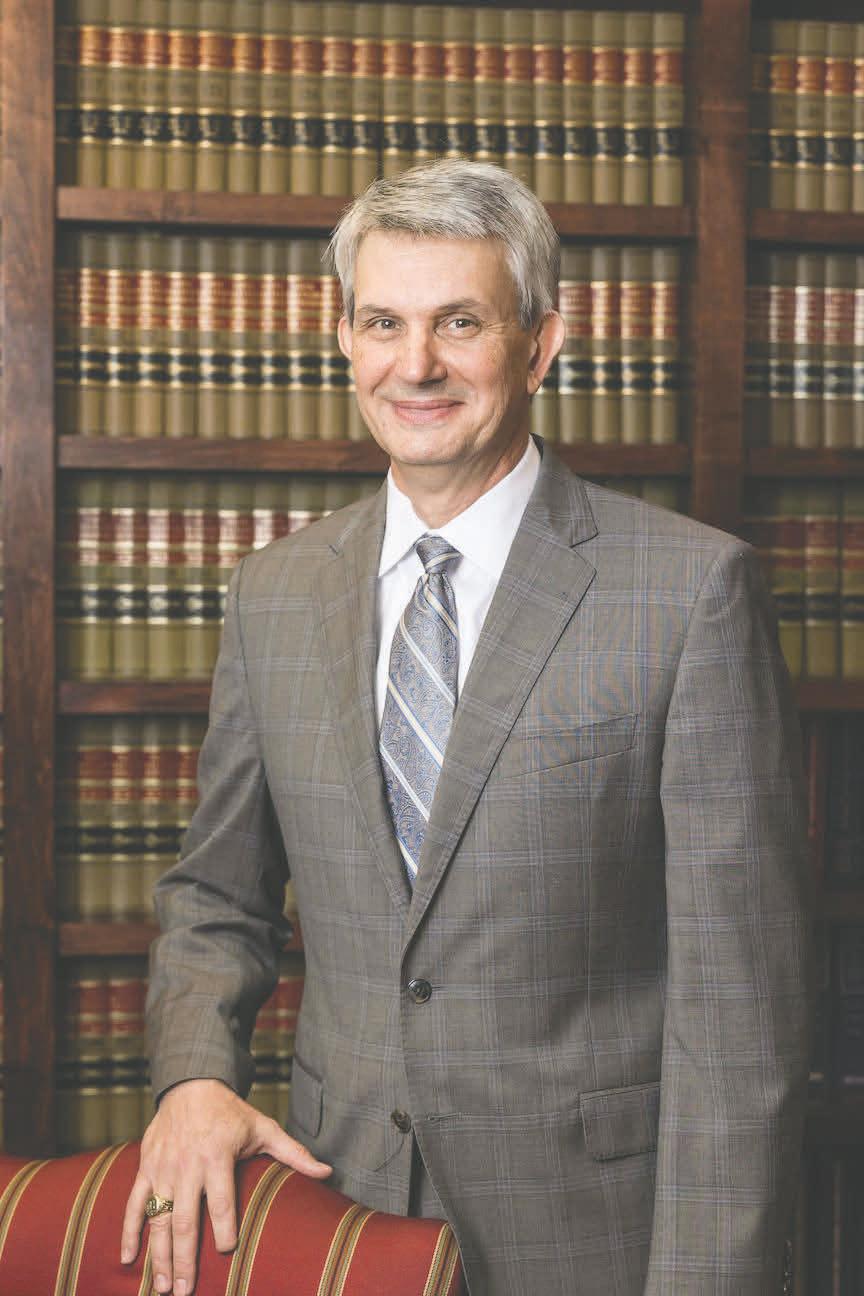
“Over my 25 years practicing law, I have helped small business owners on civil and business matters, large scale narcotics cases, murder cases and many family law matters,” he said. “These experiences have allowed me to see all sides of an argument, thus giving me the ability to serve as a strong legal advocate on a broad range of issues for my clients.”
It might come as no surprise that for an attorney who entered the legal profession because he believes in justice and the value of helping others would cite "To Kill

Jasmine Smith is a first-generation college graduate.
“No person in my family had completed a traditional four-year degree, so I consider my bachelor’s degree, my graduate degree, and my law degree at the top of my list of top accomplishments,” she said.
At Robinson Gray Stepp & Lafitte, Smith is an associate who concentrates her practice on commercial litigation, professional liability and ethics, probate and estate
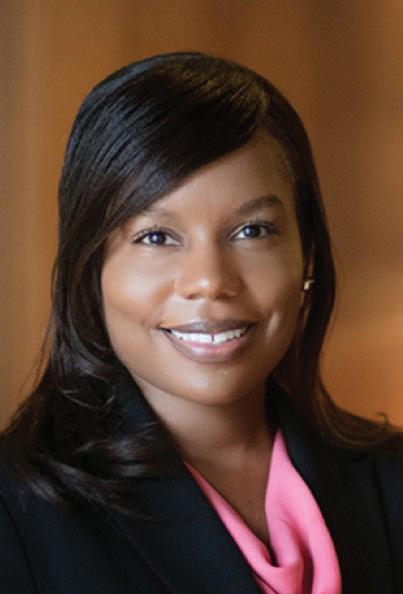
litigation, and appellate advocacy, focusing on family law.
Smith has dedicated her 10-year career to laying a path for the generation coming behind her and mentoring younger attorneys as they develop their own careers. At her firm, she co-chairs the summer law clerk program which offers law students the opportunity to develop professionally through legal work and networking. She also serves as an Adjunct Professor of the Moot Court Program at the University of South Carolina School of Law.
Before enrolling in law school, Smith earned an Education Specialist (Ed.S) degree in counselor education from USC, a degree that is 30 hours more than a typical Master’s degree. She considers that degree crucial to her practice.
“My background in counseling helps me understand how others think and experience traumatic issues,” she said. “That understanding helps me assist clients in resolving complex legal issues with compassion and empathy.”
counsel in scores of securities class actions throughout the country and, along with its institutional investor clients, has recovered more than $2 billion for investors, including an nearly $810 million settlement that was negotiated in September 2021 on behalf of investors in the In re Twitter Inc. securities litigation.
In fact, the desire to help people inspired Smith to pursue a career in law.
The legal profession is similar to the counseling profession, which is why lawyers are often termed attorney and counselor at law,” she said. “I have always been interested in understanding and resolving complex issues.”
It’s no surprise that Smith believes if she had not become a lawyer, she might have pursued a career as a marriage and family therapist.
Her favorite movie about attorneys is "Just Mercy," adapted from a memoir by Bryan Stevenson, a Harvard-educated attorney who dedicated his career to representing poor clients in the South and was a co-founder of the Equal Justice Initiative. The movie focuses on his work and his clients, including Walter McMillian, whom Stevenson began representing in the late 1980s when he was on death row for killing a young white woman in Monroeville, Ala. McMillian was ultimately exonerated.
After spending 35 years representing domestic and foreign institutional investors and union pension funds, directorial misconduct, and securities fraud matters, Gregg Levin takes pride in the role he has played in building the securities practice at Motley Rice.
Today, that practice is a nationally-recognize leader in that area, Levin says. The firm has served as lead counsel or co-lead
“I am proud to have played a role in litigating that case over an almost 5-year period and gratified that the settlement (and Motley Rice’s work in the securities space) earned our department the honor of being named a 2021 Securities Practice Group of the Year by Law360,” he said.
In addition to his role as a member at Motley Rice, Levin is a vice president of the Institute for Law and Economic Policy. He graduated magna cum laude from the University of Rochester and received his law degree from Vanderbilt University School of Law.
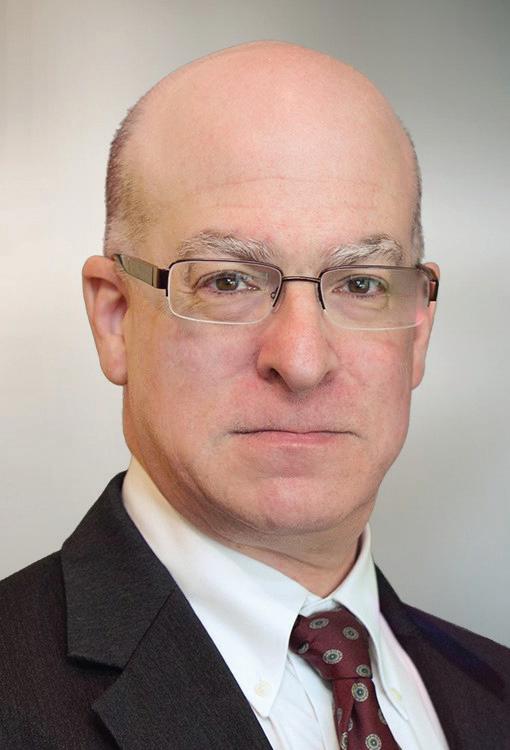
Levin chose a career in law for its challenges and rewards.
“Not only can lawyers assist others who are in need, but they also can help affect change while doing so,” he said. “Additionally, the work is stimulating and intellectually challenging and it has been a privilege to be on the front line of many cuttingedge issues and cases.”
Levin recalls a movie from his past that still resonates with him. "Reversal of Fortune" tells the story of the appeal filed by Claus von Bulow who was convicted of injecting his wife with a lethal dose of insulin.
“I remember being struck by the efforts of Alan Dershowitz and his team as they painstakingly reviewed and mastered the trial court record and worked together to plan an effective appellate strategy,” he said. “Having written many briefs and argued several appeals, I can honestly say that prosecuting a successful appeal does take a village in addition to a keen understanding of all parts of the record.”






































































































































































































































































































































































































































































































